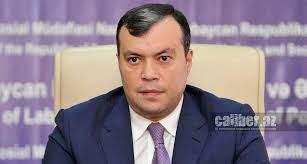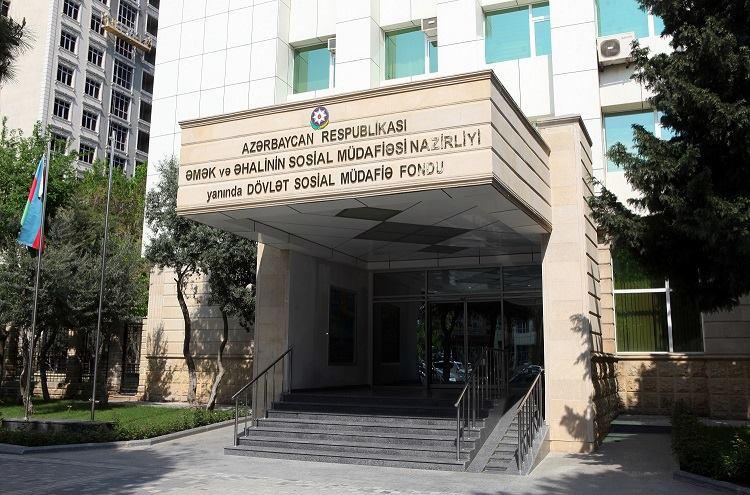Azerbaijan's strategic response to global employment crisis Key measures in focus
Geopolitical conflicts, sanctions, trade wars, recession, and inflation in 2023, coupled with climate challenges and the displacement of various professions due to digitalisation and artificial intelligence, have significantly impacted global employment.
These issues were central to discussions at the 112th session of the International Labour Conference in Geneva, attended by a delegation from Azerbaijan's Ministry of Labour and Social Protection of Population. The International Labour Organization (ILO) emphasized the need for increased state support and the expansion of self-employment projects to mitigate these adverse effects, a strategy that has seen success in Azerbaijan.
Experts from the ILO highlighted that the series of crises starting from the coronavirus pandemic and escalating conflicts in the Middle East and Ukraine have disrupted value chains, logistics, and raw material transit. The energy and commodity crises of 2022, followed by the recession and inflation of 2023, affected even Europe's prosperous states, leading to production halts and a shrinking labour market.
The global recession has similarly impacted the economic performance and labour markets of many developing countries, including those in the post-Soviet region. According to an ILO report from May 2024, the number of unemployed people worldwide is expected to reach 402 million this year, a significant increase from the 186 million unemployed in pre-crisis 2019, reflecting more than a doubling in unemployment over five years. Additionally, informal sector employment, without proper registration and social guarantees, has grown from 1.7 billion in 2005 to 2 billion in 2024.
The ILO report indicates a slight decrease in the global unemployment rate for 2024, from the previously forecasted 5.2% to 4.9%. However, the overall situation in the global labour market remains far from ideal. "The ILO report reveals the critical employment challenges we still need to address: despite our efforts to reduce global inequality, the labour market remains a very unequal playing field. We must put inclusion and social justice at the heart of our policies," stated ILO Director-General Gilbert Houngbo.
Given these negative trends, UN experts underscore the importance of gender equality, reducing informal employment, and bolstering state support for labour markets in developing countries, including the enhancement of self-employment mechanisms.

These and other issues were placed on the agenda of the 112th session of the International Labour Conference, held from June 3 to 14 in Geneva at the initiative of the ILO. Delegates from 187 countries, representing governments, trade unions, and employers' organizations, discussed the ILO Director-General's report, "Towards a Renewed Social Contract." The report focuses on ensuring social justice, decent work for all workers, and universal access to social protection systems.
A delegation of the Ministry of Labour and Social Protection of Population of Azerbaijan, headed by Minister Sahil Babayev, took part in the forum in Geneva. The head of the Labour Ministry reminded that Azerbaijan had acceded to 60 ILO conventions, including 9 out of 10 fundamental ones, and work on ratification of two more conventions was underway. During the conference, Azerbaijan's efforts, which has made significant progress in the field of social protection and improved employment indicators in recent years, were positively assessed.
In the post-pandemic period, production growth and exports in the non-oil sector have increased due to private sector activity, and accordingly, Azerbaijan's need for labour has grown, including against the backdrop of large-scale infrastructure and construction projects in the Karabakh region.
"Over the past six years, about 545 thousand people have been employed in Azerbaijan. At the same time, more than 131 thousand people have been provided with temporary employment on paid public works, about 80 thousand citizens are involved in self-employment programmes, also 27.5 thousand people are involved in various professional training programmes," Deputy Labour and Social Protection Minister Anar Aliyev said recently during parliamentary discussions on amendments to the Law on Employment.

According to the Ministry of Labour and Social Protection of the AR, in 2023 alone, employment centres provided 118.4 thousand people with jobs, 17.4 thousand people were involved in the self-employment programme, and 9.5 thousand people were sent to vocational training courses.
Moreover, thanks to the efforts made in recent years to "sanitise" the labour market, all new vacancies were formalised following the regulations of the labour and tax codes. These positive trends were also observed in the first quarter of this year: through the efforts of the State Employment Agency under the Ministry of Labour, active measures covered up to 98.6 thousand people, of whom slightly less than half were employed. During the reporting period, vocational training courses were also organised for 3.4 thousand unemployed, and 50.3 thousand people received career guidance services.
Apparently, we should expect even more positive results in the area of support for unemployed citizens this year, as the financial capacity of state structures in the field of employment will increase, taking into account the revised forecast of state budget revenues for 2024.
It is worth mentioning the self-employment support program in Azerbaijan which has been recognized by the World Bank as the leader in the South Caucasus region in terms of its coverage of the population. In 2016, the head of state issued an order to implement measures for ensuring self-employment, which marked the launch of a significant microbusiness financing program in the country. The number of individuals participating in the self-employment program has steadily increased, growing from 1,232 people in 2017 to over 17,300 last year.
Currently, the focus of the self-employment program is on attracting labour resources to the newly liberated territories. State support for initiating businesses is expected to benefit at least 2,500 residents in Karabakh by 2026. Micro-entrepreneurs and their families receive inventory, equipment, and financial resources to develop apiaries, small livestock farms, and other agricultural projects, as well as to establish small service and trade facilities.
According to Mustafa Abbasbeyli, head of the board of the State Employment Agency, active self-employment activities are being carried out in the liberated regions of the country, and labour fairs have been held in Aghali village of Zangilan district, Fuzuli and Lachin towns. Thus, just recently, equipment was provided to the residents of Lachin town and the nearby village of Zabukh, as well as the "smart" village of Aghali in Zangilan district, as part of the self-employment programme.

As a result, micro-enterprises have been set up to produce flour products, assemble doors and windows, create a beauty parlour, tailoring studios, etc. The opening of the Karabakh Regional DOST Centre and the Karabakh Regional Vocational Training Centre in Barda last August is seen as an extremely important step in this regard. Nine administrative districts are included in the scope of the Karabakh DOST Centre, and 159 services will be provided here on the principle of a "single window" in 15 directions.
In its turn, the Karabakh Vocational Training Centre has formed infrastructure for the annual training of 1200 citizens in 48 professions, including tailors, seamstresses, designers, cooks, waiters, hairdressers, make-up artists, locksmiths, carpenters, turners, joiners, furniture makers, painters, welders, plumbers etc. All these future specialists will be in high demand in the dynamically developing cities, towns and industrial zones of the resurgent Karabakh region, which is destined to become the driver of Azerbaijan's economic growth in the coming decades.








